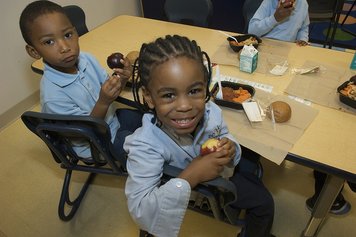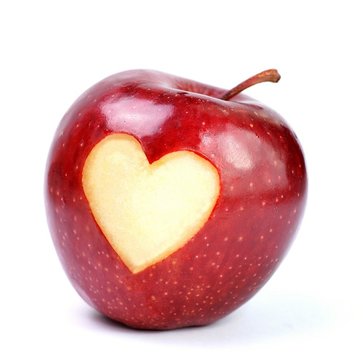|
1/17/2017 0 Comments The Four Pillars of Healthy Eating - The Best Way to Teach Kids How to Eat Well Image credit: Flickr user chelcmaev. Image credit: Flickr user chelcmaev. First let me say that being a good role model is not synonymous with being perfect. Perfection is not possible. Not only that, perfection is also not relatable. If perfect walked into a room, would you like her? We need our humanity, our quirks and eccentricities. In short, we need to be ourselves. Authenticity is the best gift we can give to our children. Even if that means being cranky, losing our temper at times, or being lazy, unmotivated, hermit-y, or too busy, too skinny, too fat, too whatever! We get to be who we are and trust in this above all else.  Image credit: Flickr user aigle_dore. Image credit: Flickr user aigle_dore. And while we are consistently trusting ourselves, and our lives; we also grow and evolve. Again, it’s not a race but something inevitable. We will grow by the nature of our very living. We will have experiences and we will learn from them. And it is our own values, and our own inner belief systems that determine what we do learn. It is how we make sense of the world that determines if we learn how to be stronger and more loving from a challenge, or shut down and isolated. In other words, we can allow the world to define us and tell us who we are, or we can author our own identities. We can look for meaning and purpose and identity in the world around us, or we can find something steady within that informs who we know ourselves to be.  Image credit: Flickr user x3sed. Image credit: Flickr user x3sed. Children are in the process of learning all the time, they are deciding who they are and what kind of world they live in based on their experiences. The key people in their lives deeply inform this identification, and as parents and caregivers of children, we are extremely important. We lead the way. We reveal the possibilities by our own nature. We express the very opportunity of humanity, as well as the real limits. This is as it should be. We cannot model the ideal self, nor the perfect scenario for it will always crumble eventually. But we can model the process of life, that is, the ability to remain humble and open to what life has to teach us. We can be curious about the exquisite design that is each person’s unique life curriculum.  Image credit: Flickr user departmentofed. Image credit: Flickr user departmentofed. In the realm of health and diet, there can be a lot of do’s and don'ts. There can be a lot of shoulds and should not’s. How can we support autonomy and freedom with food, but still practice discernment and self-preservation? When it comes to eating, there are four key areas of role modeling that are powerful teachers for instilling healthy eating habits and awareness in yourself and your children. Consider how each area is constantly moving and shifting, constantly being honed and refined as life goes on and the body changes. Consider how each area complements the other and when in balance can bring great nurturing and harmony to a household. Consider where your strengths lie, and where your working edge may be. What needs more attention? What needs less? How can one support another? How do these four pillars manifest in your home and life?  Image source: Flickr user sebadore. Image source: Flickr user sebadore. 1. Respect. Certainly, respect refers to one’s self-respect and how we can respect our own physical body and its feedback to us. Are we listening to our symptoms or overriding them? Are we making choices that are respectful to the needs of our digestive health, our brains and moods, our vitality? Moreover, can we uphold respect for quality research and what nutritional science has to reveal? Can we respectfully update our belief systems regarding health, fitness and wellbeing based on new understanding? And finally, are we respectful of our own timetable, our own process with our health and health goals? When we have respect for this process, then we cease bullying ourselves and pressuring ourselves to be someplace we are not. We begin to understand that the very timing of things has had significance, and that we need only respond and attend to ourselves in this moment. And when we develop and nurture respect for this kind of growth and learning, then we cease any attempts to control others, wanting others to be in a different place with their body, and health. We cultivate respect for ourselves, each other, and the larger process.  Image credit: Flickr user smartyr. Image credit: Flickr user smartyr. 2. Flexibility. Naturally we want answers and some even like the comfort of having rules and formulas to follow. If _______, then ________. And while such structures have a very legitimate place, we are ever changing. Our life circumstances change, our activity levels change, our geographic regions can change if we move, our sleep habits change, our body goes through stages. Is it reasonable to apply one strict set of rules to live by through all of this? Perhaps in some areas of life, but when it comes to the food we eat and the way to be healthiest, the research suggests otherwise. We do have different needs biochemically at different life stages and we even have different sleep and circadian rhythms at different ages. One size does not fit all, and with flexibility we have the choice and the freedom to experiment and learn as we go. When we model flexibility we take into account the bigger picture, and the context of things more accurately. We show how important it can be to let go of restraint, or beliefs that are based on the past and continue updating to what is present, for people do change and our relationship to food also changes. When we are flexible, we remain open to being even more informed by our bodies and our experiences. Flexibility is a form of humility because when we are strict and rigid and not willing to budge then we imply that we have found the answer and that no greater truth can possibly arise. It is worth it to ask ourselves if this is really true, or is there a possibility that we might change? Is there a possibility that new understanding and insight could come? Flexibility with our point of view and our health practices allows room for evolution.  Image credit: Flickr user scottdkp. Image credit: Flickr user scottdkp. 3. Creativity. Creativity with food is about so many things. It certainly is about trying new things, new flavors, new textures, new methods of cooking, and new possibilities for meals. We are habit forming creatures, and this is not necessarily a bad thing, but it can keep us from feeling that vital aliveness that only creativity can bring. When we are creative with food, we notice the beauty of it. Maybe we even sketch or paint our food! We honor the importance of aesthetics in the shape and the color of the things we eat. We exclaim and share wonder at the beauty within the color of a beet, the juiciness of a fresh orange, the mystery of the pomegranate. We take the time to notice, simply notice, what our food looks like, tastes like, feels like. We do this in a moment here and there, we share this with our children. We try new recipes and new ingredients, new flavors and seasonings. We explore the world with our food, we honor our ancestors with our food, we learn together in our cooking. Food is something special, that links us all together and we do bond over food. When we model creativity with food, cooking is not always a tiresome chore, but it is a place to play, to take risks, and to learn even more about who we are. Creativity honors food as a symbol and an essential part of life, rather than merely a means to an end. Children often enjoy peeling vegetables, shucking corn, separating and sorting through ingredients, measuring, pouring and stirring and tasting. Make it a mission to try new things and learn how to cook healthy foods in a way that taste the most delicious to you and your family.  Image credit: Flickr user usdagov. Image credit: Flickr user usdagov. 4. Enjoyment. Finally, enjoying our food is important. We can slow down and enjoy the many tastes of food, the sweetness, the savory and salty, the tang of sour, and the strange yet important bitter taste. We can take in our nourishment without mentally counting calories, or fat grams, or sugar grams, or wondering and monitoring how much we’ve had or others have had. We can enjoy. When we model enjoyment we model a body that is relaxed and able to experience pleasure with food. We are comfortable with our sensations and we relish in the experience of a finely cooked or created morsel. When we stop to truly enjoy, we may find we need less, because we have given ourselves the moment of enjoyment in eating. Eating is pleasurable! And healthy foods can encompass all the flavors available and be exciting and delicious. When we model enjoyment we send the message that life has pleasures and we are worthy of this. There is enjoyment to be had with this body and this life. It is not all work, and no play. It is not all control and no freedom. The body is meant to play and sense and explore, not be managed and restrained. Enjoyment is a gift, and we each will have our own unique foods that bring us that gift. For some it will be a simple fruit, or a meal that took time and cooked very slowly and deliberately. Some will find enjoyment in a cup of coffee, tea, or an exquisite dessert. There are as many opportunities for enjoyment as there are people on this earth. Find yours, and celebrate it and align it with your values. Make adjustments as needed so the enjoyment is truly pure, rather than shadowed with guilt or intuition that undermines the pleasure. True pleasure has a wholeness to it, where not one part of us must be sacrificed to experience it. True pleasure is more simple than we imagine it to be. Enjoyment comes first and foremost with being present and discovering the incredible power of sensation, taste, and nurturing. We can rest in this. There is goodness.  Image credit: Flickr user mini_malist. Image credit: Flickr user mini_malist. As you reflect on these four pillars for role modeling healthy eating, what comes to mind? Do you find yourself sifting among them, sorting through different memories and experiences? Food is a powerful gateway for all of us. It holds vast amounts of memory, and emotions. Our relationship to food can hold keys for us to early memories and relationships, our family of origin and cultural influences, and the way we relate to our own worth and needs. Navigating this territory is a tender, yet rich process and as we parent, and are role models for the young people in our lives, we have an opportunity to rewrite our stories. If there are areas of the past that sent us in the direction of self-denial, or self-harm, or extremes around being too strict or too uncontained with our eating, then we contain within us the power to change that narrative. And as we do change the narrative, step by simple step, we also model the reality of life, the ongoing learning and process of growth. We are never done learning and growing and becoming more of the good person that we are. Food may have ties to the past, but it also lays a foundation for our future. The choices we make as individuals and heads of households can be protective, preventive, and strengthening for all that lies ahead. And as we practice balancing respect, flexibility, creativity, and enjoyment with our food, then we cultivate and grow these qualities in every area of our life for ourselves and our children.
0 Comments
Leave a Reply. |
ArchivesCategoriesAll ADHD Brain Health Children's Health Diabetes Iron Magnesium Nutrition Parenting Supplements Zinc |
|
Copyright © Francie Healey
|
Site Design by Angulo Marketing & Design
|
 RSS Feed
RSS Feed